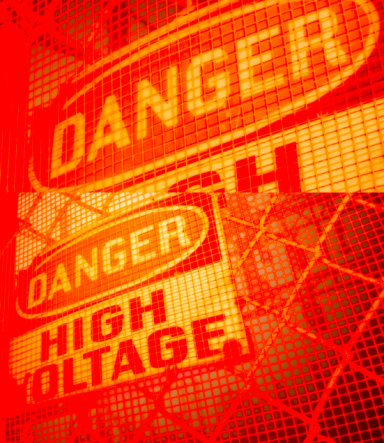 The following article explores how to protect your property against attractive nuisance dangers. Although property owners are generally not responsible for protecting trespassers, in some cases, landowners or those who occupy land under leases can be held responsible for injuries to children that are caused by man-made conditions on the property. Considered attractive nuisances, these might include buildings, construction sites, heavy equipment or even man-made ditches.
The following article explores how to protect your property against attractive nuisance dangers. Although property owners are generally not responsible for protecting trespassers, in some cases, landowners or those who occupy land under leases can be held responsible for injuries to children that are caused by man-made conditions on the property. Considered attractive nuisances, these might include buildings, construction sites, heavy equipment or even man-made ditches.
Property owners have the power to thwart entrance onto their property and discourage young trespassers from getting hurt. One might use fencing, illustrated signs or other means to prevent children from entering the property and potentially injuring themselves. If you have any reason to believe that children might trespass onto your property or in your facility, treat the problem with the highest gravity. Doing nothing to prevent the entry or injury of trespassers creates a serious financial risk for your company.
Owner Liability in attractive nuisance dangers
As the owner of the property, you are responsible for taking steps to assure that anyone who enters, whether welcome or unwelcome, stays safe from injury. While warning signs are an excellent start, many children may not be able to read them, so it is important to find additional ways of protecting your property.
Ensure that gates are secured and fences are not easily climbed. Adequately protect any conditions,
including pools, ditches, walls or other man-made physical features, that might present a hazard. This may mean covering the pool to avoid accidental drowning, placing sturdy fencing around hazardous areas or placing warning or “No Trespassing” signs. In addition, all safety equipment should be stored and locked at the end of each shift to avoid trespasser tampering.
Premise Liability in attractive nuisance dangers
Property owners are also liable for the maintenance and security that the property needs so that it remains safe for all visitors. This includes the following:
• Fixing cracks or gaps in walkways to avoid slip and fall dangers
• Locking all hazardous tools, equipment and chemicals away from the public
• Ensuring that employees can conduct work duties without the risk of injury
• Hanging flood lights in areas with low visibility
• Hiring security guards for added protection
• Installing rescue equipment, such as ropes and poles, when necessary
• Installing alert devices, such as flashing lights, sirens, alarms and telephones to alert security that
someone has trespassed onto the premises
With regard to attractive nuisance cases, negligence means that the property owner was aware that someone could get hurt on the property and did nothing to prevent it. If you take all necessary precautions to protect individuals that are on your property, you are less likely to be found negligent in a premise liability suit.
For more assistance in protecting your property and your business, contact Hardenbergh Insurance Group today.
 Brian Blaston
Brian Blaston
Commercial Lines – Manager
Hardenbergh Insurance Group
phone: 856.489.9100 x 139
fax: 856.673.5955
www.hig.net


